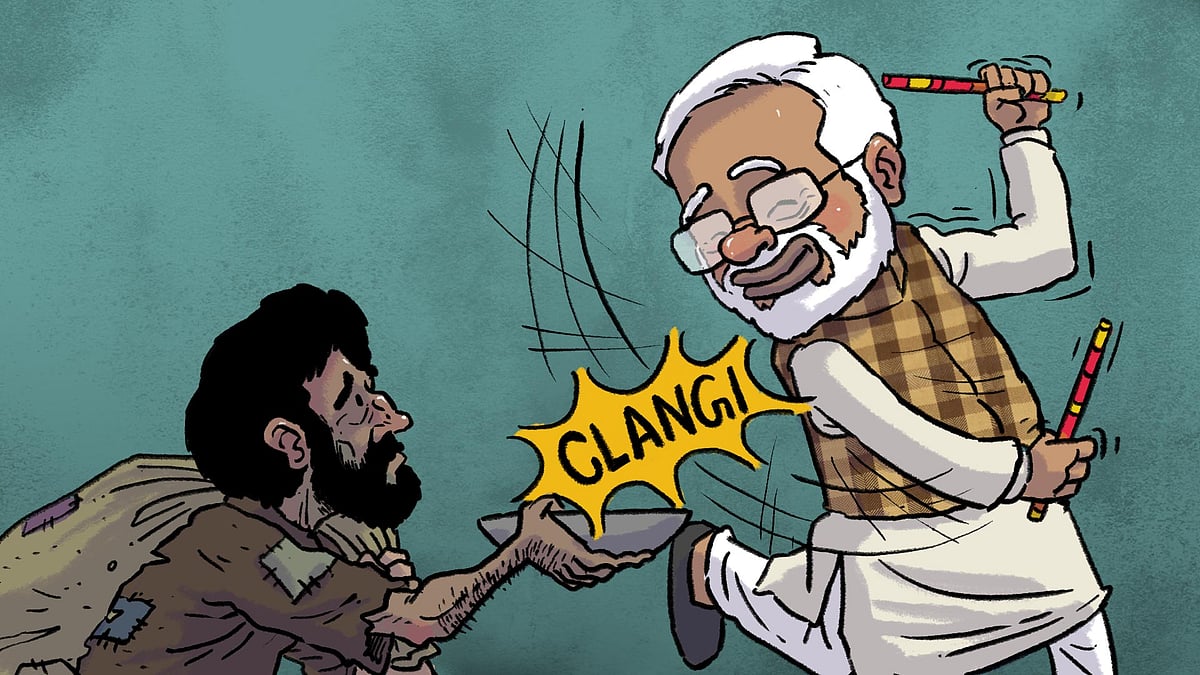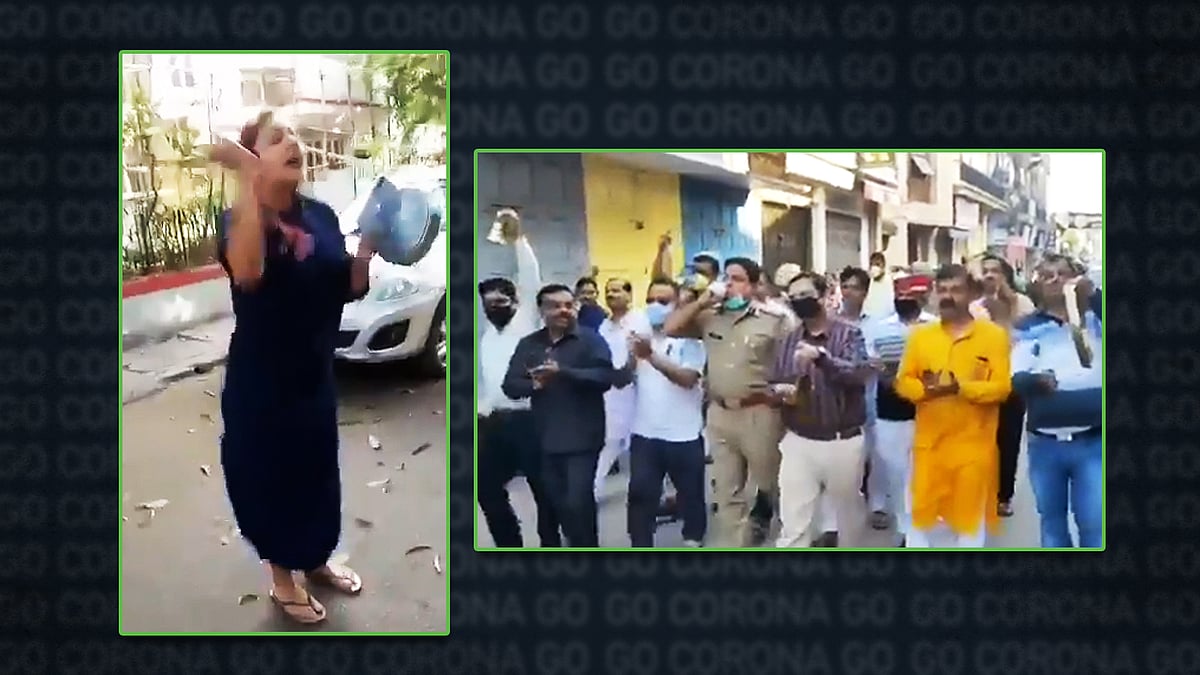Should private hospitals and labs be nationalised to fight the coronavirus pandemic?
The Supreme Court says the proposal is ‘misconceived’.
On April 13, the Supreme Court of India refused to direct the central government to nationalise all healthcare until the coronavirus pandemic was contained. “This is not a decision the court can ask the government to take. We cannot order nationalisation of hospitals,” a bench of Justices Ashok Bhushan and Ravindra Bhat said. “The government has already taken over some hospitals.”
The court described the proposal as “misconceived”.
But Amit Dwivedi, a lawyer who had made the proposal in a petition filed last week, said while he accepted the ruling, India must strive for universal public healthcare.
What makes Dwivedi so sure? Moreover, is nationalising healthcare a good idea to begin with?
Newslaundry spoke with the petitioner, a social scientist from the Tata Institute of Social Science, and a journalist with expertise in the subject to find out.
The petition
The Public Interest Litigation sought to nationalise “all healthcare facilities, institutes, companies and entities related to healthcare sector in India” until the outbreak was contained.
It also prayed that “tests, procedures, and treatments in relation to the virus conducted by all healthcare facilities, institutes, companies and entities related to healthcare sector in India are made free of cost for all citizens until the pandemic subsides”.
“Nationalisation of healthcare has been happening in many countries of the world to contain this pandemic, including but not limited to Spain. Once nationalisation of the healthcare facilities and related institutions happen, then the struggle against COVID-19 would become effective,” the plea argued.
The argument that India’s healthcare system wasn’t equipped to deal with the current crisis, the petition added, was “misleading” and “factually incorrect”. “In the last two to three decades, India has emerged as a hub of medical tourism and today India accounts for 18 percent of the global market share of it,” the petition explained. “The medical tourism industry is estimated to grow at the rate of 200 percent annually and is estimated to touch $9 billion in 2020.”
Indian private healthcare infrastructure which can cater to almost a million people, the petition pointed out, “is lying unutilised in the wake of the ban imposed on arrival of foreign nationals in India”.
This infrastructure must be used to take care of all Indians, the plea prayed.
The ruling
While the court rejected the nationalisation proposal, it tagged the prayer for free testing and treatment to an older petition by one Shashank Deo Sudhi.
In its order on Deo’s petition, the court amended its ruling delivered last week mandating private labs to provide free Covid-19 testing to everyone. It said only people who cannot afford the cost of the coronavirus test at a private lab, Rs 4,500, should get it for free. The court also allowed the government to issue guidelines for reimbursing the cost of free testing to private labs.
‘A hospital can’t be allowed to say it’s a service provider’
Amit Dwivedi hails from Bundelkhand, a region straddling Madhya Pradesh and Uttar Pradesh where the public healthcare system is rudimentary. Indeed, Dwivedi said, his petition was informed by personal experience of the public health system.
“It does not work,” he explained. “My brother fell ill in 2014. He had a brain tumor. We used up all our savings trying to save him. We went to a government hospital to get a date for surgery. It should have been scheduled within three weeks. However, they could not give us a date nearer than three-four months.”
So, they took him to a private hospital. “We had to incur a lot of costs on his surgery there. Still, he developed some complications,” Dwivedi recalled. “In private hospitals, the idea of charging 25 percent of the fee from the poor and helping people is rubbish. They have their own cost management. They have no sympathy for poor people.”
When the Supreme Court last week ordered free testing for everyone, Dwivedi argued, common people breathed a sigh of relief. “We need an order of that sort,” he said. “Government is saying we should take care of ourselves. But how will we do that?”
He added, “The government must protect you. At least 70 percent of the people cannot protect themselves. In this situation, it is very important that we use the resources of this country to tackle the pandemic.”
To test for coronavirus, India initially pressed into service 113 government labs. On March 27, the Indian Council for Medical Research, the nodal agency for Covid-19 testing, said 35 private labs had been roped in for testing as well. On April 7, the number of such private labs was increased to 65.
“What does it mean? That government resources are not sufficient,” Dwivedi said. “Until the curve flattens, every health resource is of the government and for the people. The people who can afford it will pay for themselves. For those who can’t, these benefits are for them.”
The government can later reimburse private labs and hospitals that provide free testing and treatment, he suggested.
Recalling his conversations with migrant workers who started walking home from Delhi after the nationwide lockdown was imposed late last month, Dwivedi said they were without hope. “Today, people are stressed over two things – contracting coronavirus and getting the required treatment.”
In India, Dwivedi said, most people have to go to private hospitals and clinics for treatment because they usually don’t have an option. Today, though, many private clinics and small hospitals have closed their doors because of the lack of personal protective equipment, he claimed. “They call their hospitals ‘shops’. The government does not coordinate with them and they believe they don’t owe anyone anything. So, they won’t provide us their services,” he charged. “A hospital can’t and shouldn’t be allowed to say it is a service provider. They get land and resources on relaxed terms.”
The Indian government’s alternative to quality public healthcare, the lawyer noted, is health insurance. But the central government’s flagship health insurance scheme, Pradhan Mantri Jan Arogya Yojana, currently covers just about 40 percent of the people. “What about the rest? There are people who work in the corporate sector but have a hand-to-mouth income,” he said. “Some have been out of work for the last two months. How can they pay if there’s a medical emergency in their family?”
‘Government should play a larger role in providing primary and secondary healthcare'
Prof Ashwani Kumar, from the School of Development Studies, TISS, Mumbai, described Dwivedi’s petition as “radical” and “very important”.
He lauded the petitioner for bringing attention to the “very crucial question” of the right to health. Ashwani, who has been involved with designing several welfare programmes such as the rural employment guarantee scheme and the Public Distribution System, argued that the petition has helped expose the “dark and ugly aspects” of market-based solutions for everything.
Asked if Indian would nationalise all healthcare, Ashwani said it was an “utopian dream”.
“I don’t think the Supreme Court can take upon itself the policy role of what the parliament or the state would do,” he said. “Even if you look at the Right to Food judgement, it's not completely nationalised. The court took a stand and directed the state to provide subsidised rations.”
Ashwani cautioned that nationalising healthcare was not a solution in itself. Canada, he said, has the most “socialised” healthcare in the world, but it is still grappling with the pandemic. “If you look at Kerala as well, they have been successful in containing the virus to a large extent. But they do not have a nationalised health system,” he said.
He added, “I think the term that should be used is ‘socialised healthcare’. What it means is that in the provision of primary and secondary healthcare, the government plays a larger role.”
‘Why should people who are willing to pay not be asked to pay?’
“I don’t see what purpose nationalising everything would serve,” said Puja Mehra, an independent journalist. “The point is that what you need isn’t only publicly owned hospitals but a greater supply of hospitals.”
In a pandemic, she explained, the policy objective should be twofold: ramp up infrastructure by building new hospitals in less time and increase their availability, especially in the hotspots. “Right now, whatever supply you have of healthcare facilities is concentrated in urban areas. There need to be new facilities in areas that are hotspots, especially if these hotspots fall in rural areas or areas where supplies of medical facilities are short,” she said.
She said nationalising medical facilities would not increase the supply of healthcare to deal with the pandemic. “If the government would reimburse private labs and hospitals, and fully subsidise the cost of doing these tests, then we could achieve the same results far more efficiently,” she said.
Mehra added, “I’m quite sure that hospitals will not want to charge a big fee for these kinds of things. “Even if you were to include all private hospitals and facilities, India’s stock of hospitals is just very low. If you take private plus government plus rural taken together, it’s very low.”
If the country needed more testing facilities, Mehra said, then it didn’t matter whether a private or public lab was doing it, as long as the private company wasn’t incurring losses.
“If I’m a private sector guy and I’m testing and you tell me I have to test for free, which is what the Supreme Court has done, then it means a loss for me,” she explained. “Whatever the price of testing is, I’ll have to absorb it. At some point, all my cash flows will come down to zero. How will I operate? I also have to give salaries, have to pay rent and have to pay the electricity bill. In order to not go bankrupt, I’ll just do fewer tests which is a wrong policy.”
In treating Covid-19, pricing shouldn’t be a barrier. “But at the same time, there are many people willing to pay,” Mehra said. “Why should people who are willing to pay not be asked to pay?”
 Why India doesn’t seem to care about its poor even during a pandemic
Why India doesn’t seem to care about its poor even during a pandemic India’s healthcare is not equipped for a COVID-19 pandemic, and we can’t clap that away
India’s healthcare is not equipped for a COVID-19 pandemic, and we can’t clap that away
